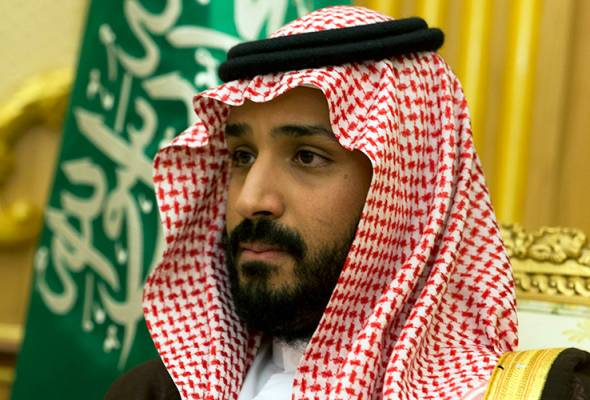INTERNATIONAL
Could this Saudi prince help end the ban on women driving?


He was careful to keep his comments general and not specifically question the kingdom's austere interpretations of Islam.
Changes in Saudi Arabian society are traditionally measured out in cautious doses. That's because the powerful Saudi rulers are not fully in charge when it comes to tinkering with anything involving the kingdom's cultural codes, particularly regarding women's roles.
Any reforms - no matter how modest - must pass the scrutiny of the Saudi religious establishment, the guardians of the country's strict brand of Islam and, in many ways, the real power behind the throne.
It took years of consensus-building and talks to clear the way for some of the latest openings, including allowing women to vote and run in municipal elections in December. Last week, another incremental step was taken: banning Saudi Arabia's religious police from making arrests on their own.
Yet other restrictions remain as firm as ever, including the world's only national ban on women driving. There's no way to accurately gauge whether the Saudi religious hierarchy would ever consider opening the roads to women. But it appears that the question is at least being floated from high places.
Saudi Arabia's Deputy Crown Prince Mohammed bin Salman - the third in line to the throne with current titles that include defense minister - has suggested that he may favor lifting the ban, and urged patiencefrom
In a wide-ranging interview with Bloomberg, the 30-year-old prince said he is trying to broaden the views of "those who distort the facts of the religious establishment so that women don't get their complete rights granted them by Islam."
Mohammad offered no hint on whether he was winning overhard-liners
"I just want to remind the world that American women had to wait long to get their right to vote. So we need time," the prince said last month.
In the Bloomberg interview, which was posted Thursday, Mohammad was careful to keep his comments general and not specifically question the kingdom's austere interpretations of Islam, known as Wahhabism.
The prince's remarks, however, hinted at a fundamental division that will shape Saudi policies in years to come. The old guard, led by the prince's father,King Salman population bulge
"We believe women have rights in Islam that they've yet to obtain," Mohammad said in the interview.
Bloomberg also quoted a former senior U.S.military officer in
But even Saudis who favor changes have other things on their minds at the moment.
A sustained slump in oil prices has started to eat away at the largess of the rulers, who have trimmed subsidies, ordered sharp increases in water bills and tightened the money flow to pay for university study in the West.
Any reforms - no matter how modest - must pass the scrutiny of the Saudi religious establishment, the guardians of the country's strict brand of Islam and, in many ways, the real power behind the throne.
It took years of consensus-building and talks to clear the way for some of the latest openings, including allowing women to vote and run in municipal elections in December. Last week, another incremental step was taken: banning Saudi Arabia's religious police from making arrests on their own.
Yet other restrictions remain as firm as ever, including the world's only national ban on women driving. There's no way to accurately gauge whether the Saudi religious hierarchy would ever consider opening the roads to women. But it appears that the question is at least being floated from high places.
Saudi Arabia's Deputy Crown Prince Mohammed bin Salman - the third in line to the throne with current titles that include defense minister - has suggested that he may favor lifting the ban, and urged patience
In a wide-ranging interview with Bloomberg, the 30-year-old prince said he is trying to broaden the views of "those who distort the facts of the religious establishment so that women don't get their complete rights granted them by Islam."
Mohammad offered no hint on whether he was winning over
"I just want to remind the world that American women had to wait long to get their right to vote. So we need time," the prince said last month.
In the Bloomberg interview, which was posted Thursday, Mohammad was careful to keep his comments general and not specifically question the kingdom's austere interpretations of Islam, known as Wahhabism.
The prince's remarks, however, hinted at a fundamental division that will shape Saudi policies in years to come. The old guard, led by the prince's father,
"We believe women have rights in Islam that they've yet to obtain," Mohammad said in the interview.
Bloomberg also quoted a former senior U.S.
But even Saudis who favor changes have other things on their minds at the moment.
A sustained slump in oil prices has started to eat away at the largess of the rulers, who have trimmed subsidies, ordered sharp increases in water bills and tightened the money flow to pay for university study in the West.
